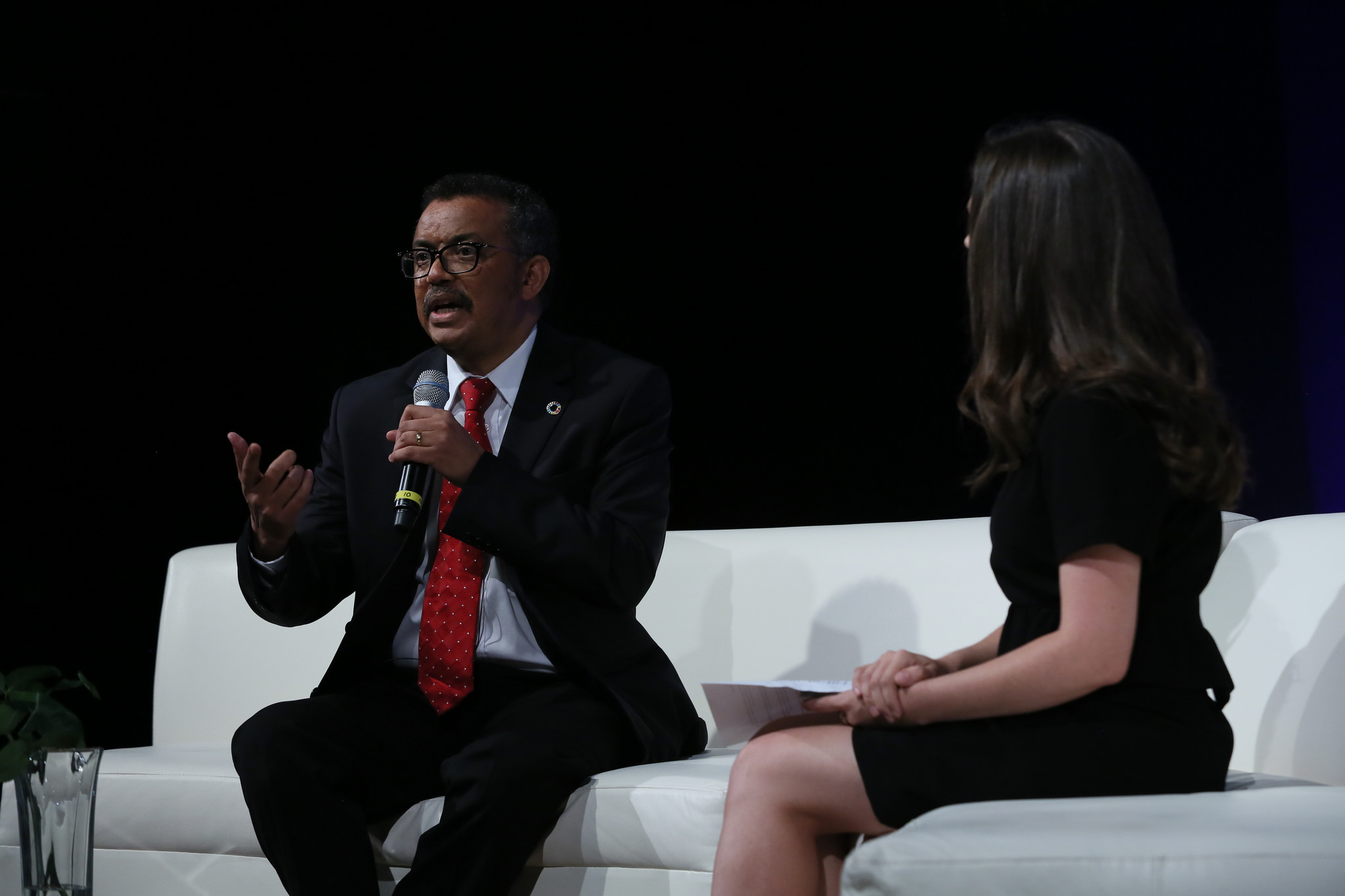
When Dr. Tedros Adhanom Ghebreyesus, the new director general of the World Health Organization (WHO), talks about the importance of universal health coverage, he often brings up the story of his younger brother who died from a common disease—possibly measles—when they were both children. “We were living under the same roof, even sharing a bed,” said Dr. Tedros (as he prefers to be called) during an interview moderated by TIME on Sept. 17. “He died. I survived. It was just luck. Why do we allow this to happen?”
Though he’s held his role for less than three months, Tedros has made it clear that the United Nations health organization will be pushing hard for universal health coverage— a hotly debated topic in the United States—during his tenure. Tedros made his case for it during the Social Good Summit in New York City, an annual event leading up the United Nations General Assembly (UNGA).
“Universal health coverage should be [viewed] as a rights issue,” said Tedros during the panel interview. “Many families are getting into poverty because they are spending their savings for health care services.”
The WHO defines universal health care as a health system that provides services to citizens without putting them at a financial risk. Today, an estimated 400 million people around the world lack access to one or more essential health services, and every year, 100 million people are pushed into poverty due to out-of-pocket health care expenses. “Access to health services should not be a privilege; it should not be a luxury,” said Tedros during the Summit interview.
Tedros gave five main reasons for why he is advocating for universal health coverage. He argues that it can reduce poverty, since fewer people would need to pay substantial out-of-pocket sums for care; that it can create jobs as health services expand; that it can spur economic growth due to a healthier population; that it would help countries achieve equity by providing people of all genders and income levels with care and that it could help prevent epidemics, thanks to stronger health systems.
“People should not die because they are poor,” said Tedros. “It’s embarrassing to let them die when we have the means [to provide care.]”
In the United States, health care reform remains in flux. While some politicians like Vermont Senator Bernie Sanders are advocating for a universal health system in the United States, other legislators are calling for the repeal of the Affordable Care Act, which provided millions more Americans with insurance.
Tedros called upon the audience to “talk to your respective governments to come to their senses and to make this happen.”
Conversations about universal health coverage will continue throughout the UNGA. Tedros and other world leaders, including representatives from Japan, France, Thailand and Senegal, will meet to discuss how different countries are achieving universal health coverage.
“Your voice matters in this,” said Tedros to the audience on Sunday, adding that he looks forward to working with young people on the issue. “We can turn this into a movement.”
More Must-Reads From TIME
- The 100 Most Influential People of 2024
- Coco Gauff Is Playing for Herself Now
- Scenes From Pro-Palestinian Encampments Across U.S. Universities
- 6 Compliments That Land Every Time
- If You're Dating Right Now , You're Brave: Column
- The AI That Could Heal a Divided Internet
- Fallout Is a Brilliant Model for the Future of Video Game Adaptations
- Want Weekly Recs on What to Watch, Read, and More? Sign Up for Worth Your Time
Contact us at letters@time.com